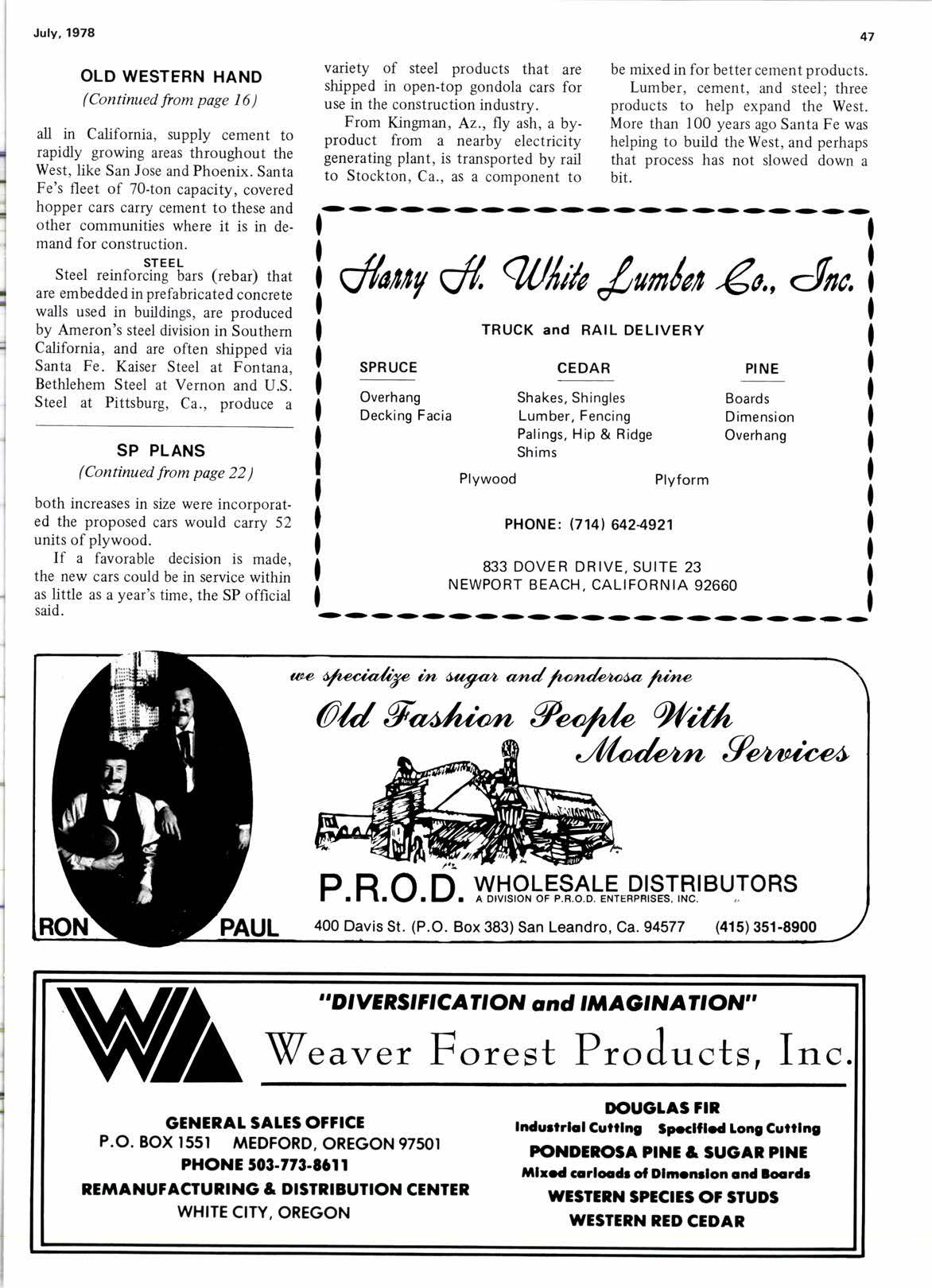
2 minute read
FI-3 ANDEINE LUMBER COMPANY
Railroad Car Shortage
(Continued from page l5 ) duction from the inland region (primarily eastern Washington and Oregon, Idaho and Montana), a decline of lVo from 1974.
Marine shipments of plywood have remained relatively constant at about l% of total production during the past few years. Virtually all marine shipments of plywood are in export traffic.
This could change, according to Riemer. Some Southern plywood manufacturers have been experimenting with barge movements along the Mississippi River and its major tributaries to Eastern and Midwestern markets. The results were good.
"In the long term, barges could be yet another transportation tool utilized by the plywood industry to facilitate the movement of production from mill to market." he said.
Despite the period shortages of railcars, Riemer said the railroads have traditionally been, and will continue to be in the foreseeable future, the plywood industry's primary mode of transporting its product. More than two thirds of last year's plywood production was shipped by rail.
RAIL SERVICE COULD BE BETTER?
"There is reason to hope the situa' tion will improve," he said. "Some of the railroad's major customers are making loud noises about the prob lem and, more importantly, the regulatory agencies appear to be listening."
During a Congressional hearing last spring, Interstate Commerce Commission Chairman Daniel O'Neal offered a number of proposals for consideration to alleviate the railcar shortage. He stressed, however, the commission was not endorsing these ProPosals, but indicated they would be given consideration.
Chairman O'Neal cited institution of reverse demurrage, which would penalize rail carriers whenever they fail to move cars promptly after they are made available to railroads. "This proposal makes a great deal of sense in that it places an equally " fair amount of responsibility for efficient car utilization on carrier and industry, not just industry," Riemer said.
It was also suggested that a national car fleet and a mandatory car distribution plan be established. Riemer commented that the plywood industry believes these proposals should be evaluated in depth and appropriate action taken only if deemed desirable and effective.
The ICC Chairman also recommended that penalty per diem be imposed. "This may well be an effective tool," Riemer said, "but we feel the ICC should first consider reinstating incentive per diem on an annual basis."
We are especially expert in custom milling. We've built an enviable record of service to our customers over more than three decades.
Let us go to work for you today.
Old Western Hand
(Continued from page 16) all in California, supply cement to rapidly growing areas throughout the West, like San Jose and Phoenix. Santa Fe's fleet of 70-ton capacity, covered hopper cars carry cement to these and other communities where it is in demand for construction.
STEEL
Steel reinforcing bars (rebar) that are embedded in prefabricated concrete walls used in buildings, are produced by Ameron's steel division in Southern California, and are often shipped via Santa Fe. Kaiser Steel at Fontana, Bethlehem Steel at Vernon and U.S. Steel at Pittsburg, Ca., produce a
Sp Plans
(Continued from page 22 ) both increases in size were incorporated the proposed cars would cury 52 units of plywood. variety of steel products that are be mixed in for better cement products. shipped in open-top gondola cars for Lumber, cement, and steel; three use in the construction industry. products to help expand the West.
If a favorable decision is made, the new cars could be in service within as little as a year's time, the SP official said.
From Kingman, Az., fly ash, a by- More than 100 years ago Santa Fe was product from a nearby electricity helping to build the West, and perhaps generating plant, is transported by rail that process has not slowed down a to Stockton, Ca., as a component to bit.











